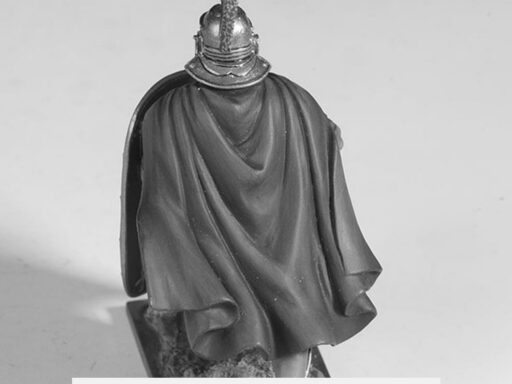James Gleick’s Isaac Newton (2003) is a highly recommended comprehensive history book about Isaac Newton that covers both his personal life and his broader historical context. This biography combines detailed insights into Newton’s character with an understanding of his scientific and cultural legacy. It stands out for merging individual biography with the impact Newton had on the world of science and modern thought.

Many biographies focus narrowly on either Newton’s life or the wider history of science. For example, Richard Westfall’s The Life of Isaac Newton (2015) offers a thorough personal biography but less on historical context. Meanwhile, books like Steven Shapin’s The Scientific Revolution (2008) situate Newton within broader scientific transformations, but without deep personal focus.
Gleick strikes a balance by exploring Newton’s scientific achievements alongside social, political, and intellectual currents of 17th-century England. Readers gain a clear view of how Newton’s work affected and was affected by his times.

For those interested in a thematic or specialized understanding of Newton’s work, several scholarly volumes unpack different aspects:
- Newton’s Apple by P. Aughton (2003) traces Newton’s role in the English scientific renaissance.
- The collection Isaac Newton’s Natural Philosophy edited by Buchwald and Cohen (2001) discusses Newton’s physics and philosophy in detail.
- B.J.T. Dobbs’ The Janus Faces of Genius (1991) examines alchemy’s influence on Newton’s thought.
Before diving into Newton-specific works, exploring general histories of science is beneficial. Books such as H. Cohen’s How Modern Science Came Into the World (2010) and Shapin’s works provide essential background.

| Category | Notable Titles | Focus |
|---|---|---|
| Comprehensive Biography | James Gleick, Isaac Newton | Personal & historical context |
| Personal Biography | Richard Westfall, The Life of Isaac Newton | Detailed life story |
| Thematic Studies | Aughton, Dobbs, Buchwald & Cohen | Specific aspects of Newton’s work |
| History of Science | H. Cohen, Shapin | Broader scientific context |
- Comprehensive works on Newton that integrate biography with context remain rare.
- James Gleick’s book serves well for readers seeking a balanced, engaging account.
- Exploring broader science history first improves understanding of Newton’s place in history.
Can You Recommend a Comprehensive History Book About Isaac Newton?
Yes, for a deep dive into Isaac Newton that balances both his personal life and historical impact, James Gleick’s Isaac Newton (2003) is a standout choice. This book manages the rare feat of being both engaging and thorough—giving you the man behind the apple alongside the revolution his work sparked.

But wait—before grabbing a biography, how do you get the most out of understanding Newton’s genius? It’s tricky. Most books focus on either Newton as a person or on the wider scientific era he shaped. Very few manage both well.
Picture this: You want to know who Newton really was, but also why his discoveries reshaped the entire scientific world. Getting both in one volume can feel like hunting for the same apple twice—rare and elusive.

Start with the Big Picture: The Scientific Revolution
To appreciate Newton’s impact, start broader. Two excellent picks here are How Modern Science Came Into the World by H. Cohen and The Scientific Revolution by Steven Shapin. These books set the stage, showing how Newton fits into a longer story stretching from medieval to modern science.

Think of it as watching the entire movie before focusing on the star. This context helps you understand not just what Newton did, but why it was groundbreaking.
Meet the Man: Personal Biographies That Illuminate

Now, if you want a window into Newton’s life—the quirks, the solitary hours, the occasional rivalries—Richard Westfall’s The Life of Isaac Newton is your go-to. This 2015 abridged version of the classic Never At Rest (1980) is detailed yet accessible, capturing Newton’s complexity.
If you prefer something quicker but still insightful, A Very Short Introduction to Isaac Newton by Rob Iliffe (2007) offers a concise look without skimping on depth.
Digging Deeper: Thematic Studies on Newton’s Work and Culture
Newton was not just a man of math and physics. He dabbled in alchemy, theology, and philosophy. Thematic books peel back these layers:
- Rethinking the Scientific Revolution, edited by M.J. Osler, challenges traditional narratives and sheds light on Newton’s era.
- P. Aughton’s Newton’s apple: Isaac Newton and the English scientific renaissance places Newton amid a blossoming English scientific culture.
- The Newtonian Moment by M. Feingold discusses how Newton’s ideas shaped modern culture beyond science.
- For alchemical insights, B.J.T. Dobbs’s The Janus Faces of Genius reveals the mystical side of Newton’s thought.
These works are gold mines for those craving more than formulas and falling apples.
Why Is It So Hard to Combine Biography and Context?
Consider this: Newton’s life spans math breakthroughs, experimental science, religious studies, and political intrigue. Capturing all that in one book, while explaining the broader scientific revolution, is like juggling apples, oranges, and… well, England’s royal secrets.
Books that focus heavily on biography often skim contextual history, and vice versa. Thus, if you want the full experience, reading multiple works might be your best bet.
James Gleick’s Isaac Newton: The One-Stop Shop?
What sets Gleick’s biography apart? It’s recent, comprehensive, and accessible. Published in 2003, it doesn’t just recount Newton’s life; it weaves his story into the fabric of the scientific and cultural shifts around him.
Gleick uses storytelling to make the 17th-century scientist come alive, explaining complicated ideas with clarity. Readers get a sense of Newton’s human side without sacrificing the drama of his revolutionary discoveries.
Practical Tips for Choosing Your Newton Book
- If you’re new to the history of science, begin with Cohen or Shapin to get the bigger picture.
- Then, pick a biography—Westfall’s for depth or Iliffe’s for brevity.
- For specialized interests, dive into thematic studies like Dobbs or Feingold.
- Or start directly with Gleick’s Isaac Newton for a balanced, compelling read.
This approach helps avoid feeling overwhelmed. Newton’s world swarms with ideas, disputes, and influences that can confuse without proper introduction.
Final Thought: Why Care About Newton Today?
Newton’s theories remain the cornerstone of physics and engineering. His work sparked the technological leaps we take for granted. Knowing about his life and legacy enriches our understanding of science as a human endeavor, full of passion and complexity.
So, whether you want to picture Newton working by candlelight, struggle through his manuscripts, or understand his role in the scientific revolution, choosing the right book makes all the difference.
“In the words of Gleick: Newton’s story is not just about science, but about the birth of modern curiosity itself.”
Ready to start your Newton journey? Pick your book, maybe an apple, and dive into a fascinating blend of science, history, and human drama.
Which book provides a broad historical context before focusing on Isaac Newton?
H. Cohen’s How Modern Science Came Into the World and S. Shapin’s The Scientific Revolution offer a wide context. These help understand the scientific era Newton lived in before zeroing in on his life and work.
What is a recommended in-depth biography of Isaac Newton?
Richard Westfall’s The Life of Isaac Newton is a detailed biography. It covers Newton’s life personally but may not fully explore his wider historical context.
Is there a book that combines Newton’s personal story with his historical impact?
Yes. James Gleick’s Isaac Newton (2003) is noted as a comprehensive biography that includes both Newton’s life and his broader influence.
Are there thematic studies available about Newton’s scientific contributions?
Yes. Collections like M.J. Osler’s Rethinking the Scientific Revolution and P. Aughton’s Newton’s apple analyze Newton’s work from varied perspectives within scientific history.
Which book offers insight into Newton’s relationship with alchemy and theology?
B.J.T. Dobbs’s The Janus Faces of Genius explores alchemy in Newton’s thought. Also, J. Force and R.H. Popkin’s essays examine his theology’s context and impact.




